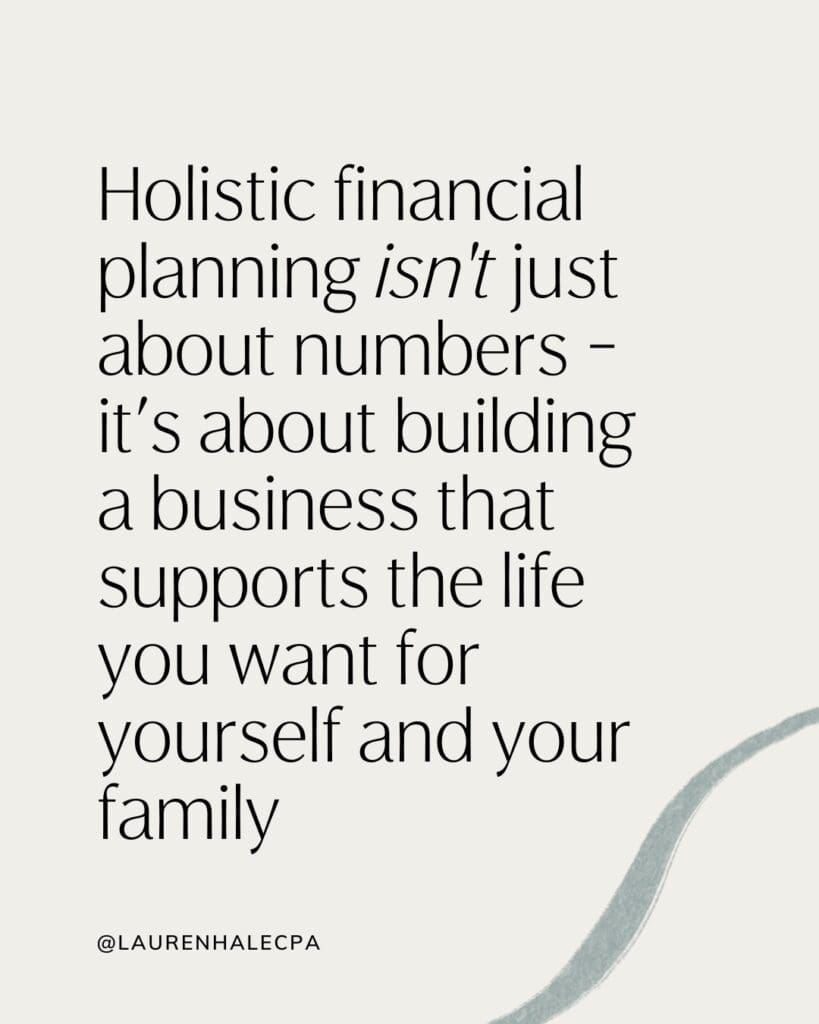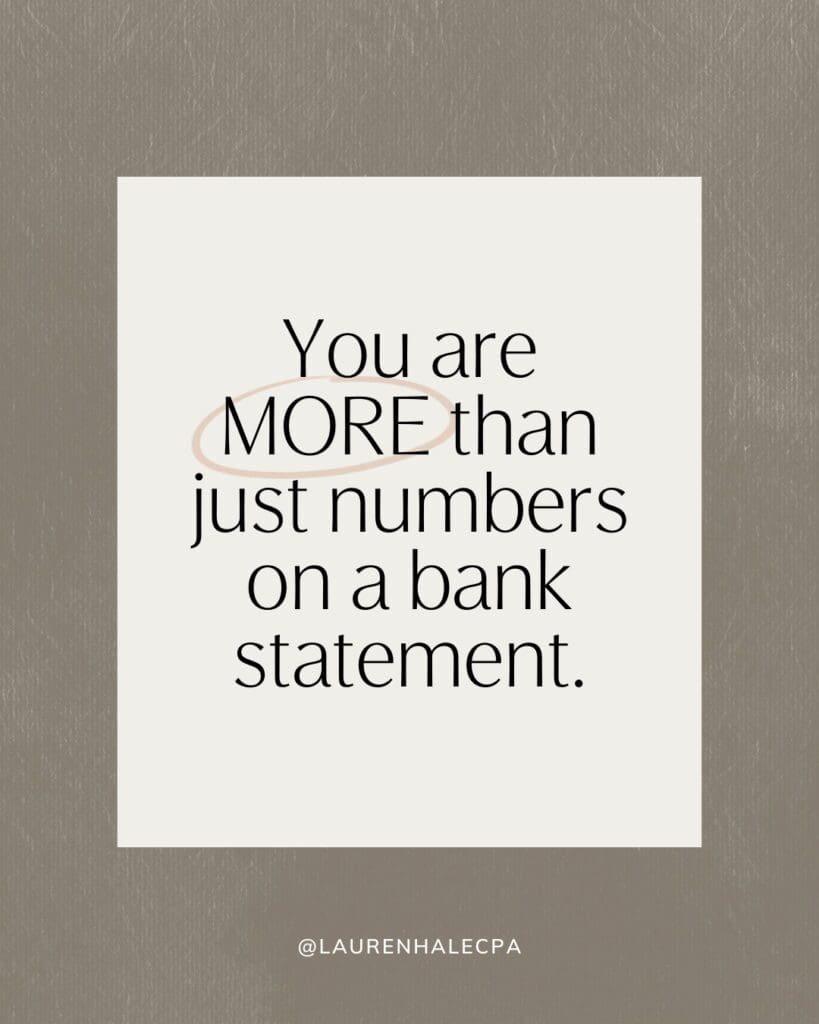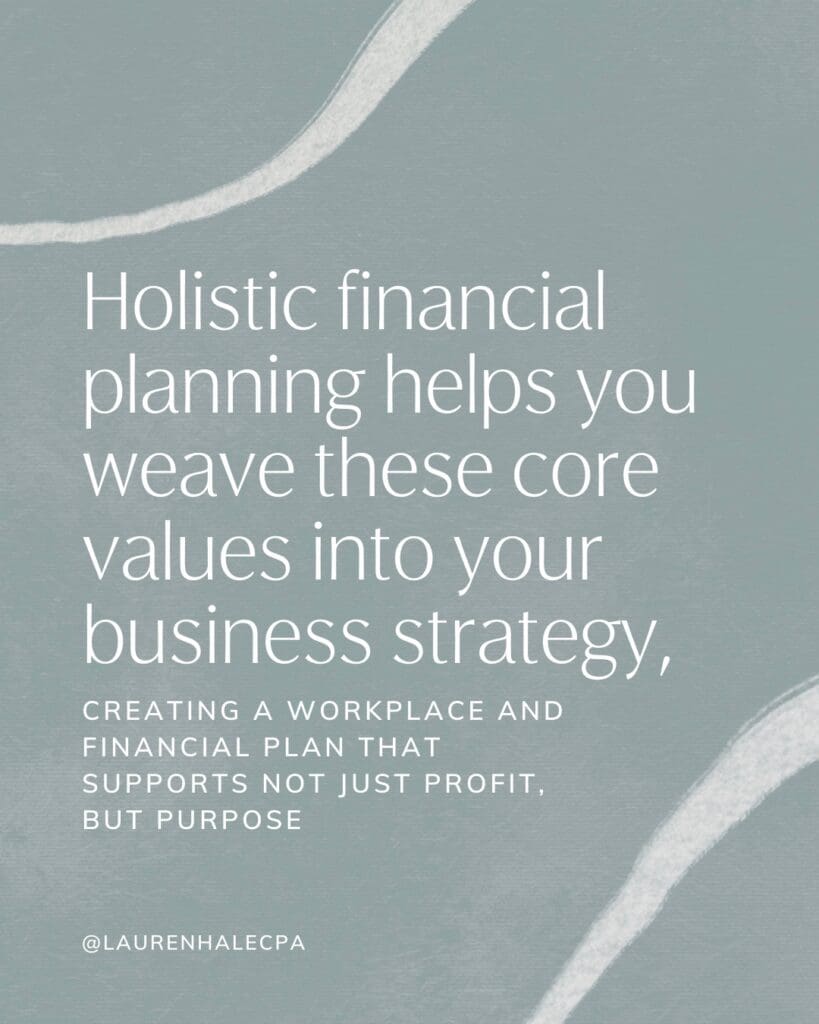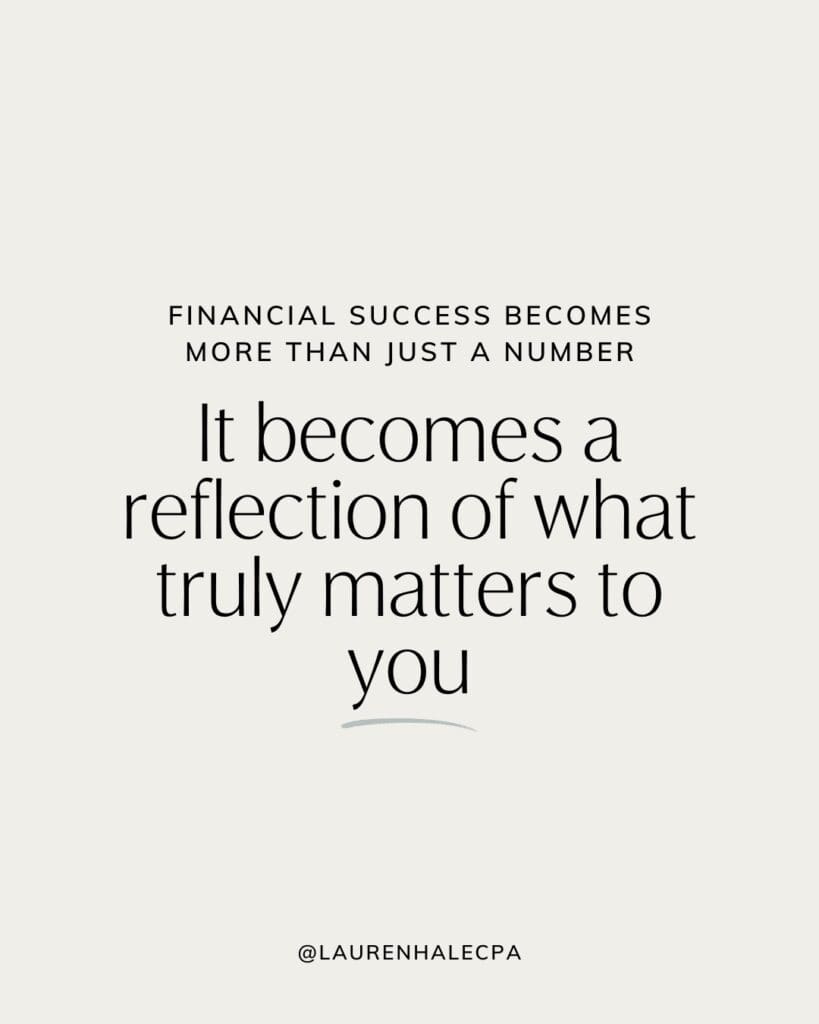If you clicked on an article about holistic financial planning, chances are that you realize your financial management strategy is missing a little something. Even if you’ve been diligent with your budget, retirement accounts, and bookkeeping for years, chances are good that you could still benefit from a more holistic financial planning approach to your finances.
And while we are not financial planners (we are accountants), we care deeply about you and your family’s financial health! Because, after all, your family’s finances and financial legacy should be a blessing to all involved- not a convoluted, confusing mess or a source of strife.
If you’re ready to broaden your understanding of financial planning, ease stress and get prepared for future success, let’s jump into everything you NEED to know about holistic financial planning for your small business!

First off, we need to understand that holistic financial planning isn’t just about numbers. It’s about building a business that supports the life you want for yourself and your family. By working with a financial advisor who looks at the full picture of your finances and life goals, you can combine heart and strategy, connecting your business finances, personal goals, and long-term vision into one cohesive plan.
Read on to learn about the key differences between traditional vs. holistic financial planning, why the holistic mindset is a game-changer, and three actionable ways to embed this approach into your small business finances—so you can stop guessing and start thriving.
Related: 7 Questions to Ask Before You Hire an Accountant
What is Holistic Financial Planning vs. Traditional Financial Planning?
Most people think of a financial planner traditionally—focused on the finances (telling you what you can spend and where… kind of like the strict budgeter on steroids), maybe retirement, and nothing else.
The main difference between traditional financial planner and a holistic one is that the latter focuses more on a client’s entire life journey and where the client wants to go in life rather than just cold calculations.
A holistic financial planner uses a 360-degree, comprehensive approach that considers every aspect of your financial life—from your personal goals and lifestyle choices to your business aspirations and risk tolerance.
Let’s be real – your life, goals, and legacy, you are MORE than just numbers on a bank statement.

In holistic financial planning, advisors operate on a “top-down” approach. They start by asking deep, meaningful questions. They look at their clients’ financial goals, how quickly they can (or want to) achieve these goals, and how their clients can move forward with a wise, money management strategy. This means they don’t just provide investment advice—they also guide you through budgeting, retirement planning, tax planning, and other financial needs so that your financial strategies align with your life vision.
This differs from traditional financial planning, the “bottom up” approach, which focuses more on numbers, statistics, and the bottom line. These advisors are looking more at numbers to determine your financial plan based on things such as age, income, and what you can afford to invest in right now. While this can be useful for certain short-term financial decisions, it often overlooks the overlap between your business, personal finances, and life goals.
For those who have visions of better retirement or a change in their future finances, traditional planning may be a discouraging reality check more than financial goal setting.
Need a recommendation for a great financial planner? Shoot us an email, we’d love to help!
Why Does Holistic Financial Planning Matter?
When it comes to your finances, going the holistic route matters because these advisors are looking more at the “big picture” and an overall financial strategy that’s both realistic and visionary. Don’t worry! They still comb through all the details and look at every aspect to ensure you are making the right investments with your finances. They also still consider the entire financial planning process, balancing investment management with other areas like debt reduction, cash flow, and insurance protection, so your long-term goals remain within reach.
Advisor can also offer you strategies in areas where you may be unknowingly falling short or not planning properly. This comprehensive approach helps ensure financial security, reduce risk exposure, and give you peace of mind that you’re working toward your financial futures intentionally and confidently. No more reactive scrambling or second-guessing.
Depending on the specifics of your financial situation, holistic financial planning can include areas such as budgeting, savings, tax preparation and planning, planning for retirement, social security, insurance planning, estate planning, and more.
When choosing a holistic financial advisor make sure that they operate as a fiduciary. A certified financial fiduciary (CFF) adheres to fiduciary duty, which commits to acting in their clients’ best interests (instead of their own). (Ie, there’s no “here, please invest in my shady stocks that I get a big cut of) You should also look for investment advisors who can show you proof of how they integrate both personal finances and business objectives into your plan.

What About Holistic Financial Planning for Your Business?
Guess what! Holistic financial planning is not just reserved for your personal financial plan. It can be applied in your business as well!
A holistic advisor looks at your goals overall as a business, where you want to go, HOW you want to grow—whether that’s scaling sustainably, making meaningful community impact, or innovating in your field—and what kind of contribution you want to make within your community. They’ll analyze how your business’s financial strategies can directly impact your personal wealth, tax obligations, and ability to fund future ventures.
3 Ways to Apply Holistic Financial Planning Principles to Your Business
1. Set Meaningful Goals That Bridge Business and Life
Goal setting isn’t just about hitting revenue targets or quarterly growth. It’s about crafting a clear vision for how your business supports the lifestyle and legacy you want to build.
Think beyond the numbers: What impact do you want your products or services to have on your customers and community? How will your business success fuel your personal goals, from day-to-day living to retirement dreams?
By setting goals that connect your professional ambitions with your personal values and plans, you create a compass that guides every financial decision with purpose.
Example: A boutique coffee shop owner might want to support sustainable agriculture and local culture. They set a goal to not only grow monthly sales but also to source beans ethically and host community events!
2. Integrate Your Personal and Business Finances Seamlessly
Too often, small business owners treat their personal and business finances like two separate worlds. But in reality, they’re tightly woven together, each influencing the other in profound ways. (But that does NOT mean you should keep them all in one bank account)
Whether it’s tax planning, investing, retirement accounts, or cash flow management, a holistic financial approach recognizes this interconnection. It also ensures all areas are nurtured simultaneously. This means avoiding pitfalls like forgetting to pay yourself, neglecting personal wealth accumulation while chasing business growth, or overlooking the tax implications of business decisions on your personal finances.
A holistic advisor helps you weave these financial threads into a strong, unified fabric that supports sustainable wealth and security.
Example: A freelance graphic designer working with a holistic advisor might structure income so they can contribute consistently to a retirement fund, while managing quarterly tax payments to avoid surprises—ensuring peace of mind while scaling their client base.

3. Live Your Values and Create Impact Beyond Profit
Who do you want to help—both on the client side AND the employee side?
This question lies at the heart of aligning your business with your personal values. One of our core values at Lauren Hale CPA is to employ moms, giving them more time at home with their kids!
After I had my twins, I was really hit hard with the realization that I didn’t WANT to leave my home, drop off my kids, and clock in at an office every day. Yes, I love the work I do as an accountant. I also wanted to hear my babies giggling down the hall as I worked.
Being able to build an entire team of work-at-home moms—giving them more time at home with their kids—is one of the most rewarding parts of running a small business.
Holistic financial planning helps you weave these core values into your business strategy, creating a workplace and financial plan that supports not just profits, but purpose. This means designing policies and goals that benefit your clients, your employees, and your community—making your business a force for good.
Financial success becomes more than just a number. It becomes a reflection of what truly matters to you, building a legacy that lasts far beyond your bottom line.
Example: A small design studio offers flexible hours so parents can be home with their kids—and donates a portion of profits to a nearby children’s charity.

Final Word
Holistic financial planning isn’t just about balancing a spreadsheet. It’s about weaving together your money, your business, and your life into a tapestry of long-term success and fulfillment.
By working with holistic advisors who understand the unique challenges of small business ownership, you can make smarter financial decisions, protect your financial security, and create a legacy that reflects your values.
Ready to have a great accountant and bookkeeper on your team? Book a call here.
